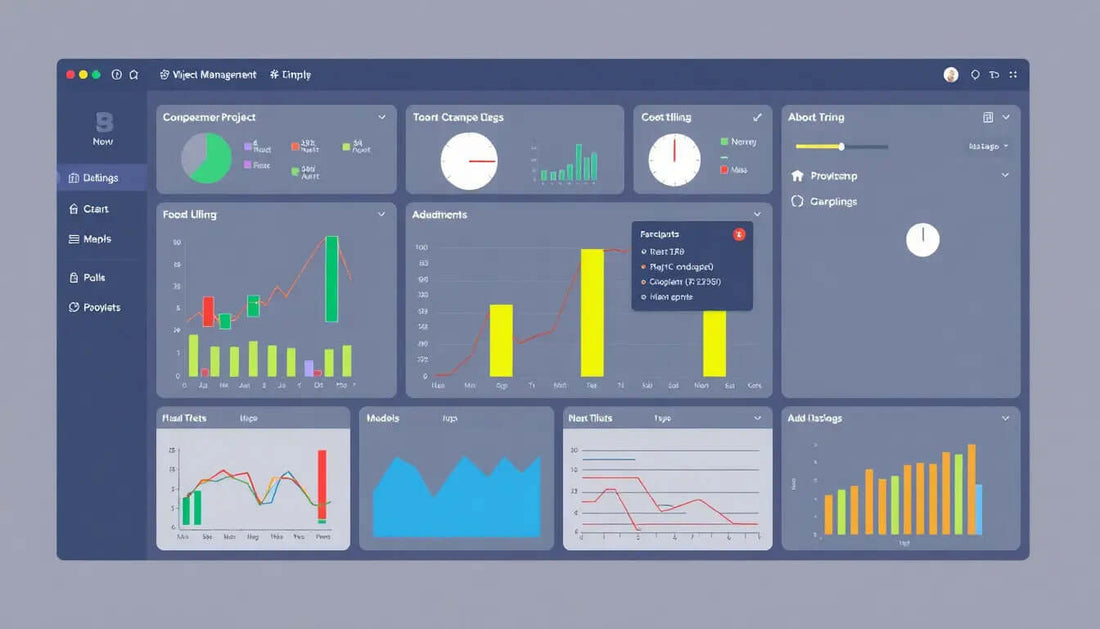
Les Compétences Clés à Développer pour les Leaders de Projet en 2025 : Perspectives et Stratégies d'Avenir
Share
Les Compétences Clés à Développer pour les Leaders de Projet en 2025 : Perspectives et Stratégies d'Avenir
Introduction
À l'aube de 2025, les leaders de projet doivent naviguer dans un paysage professionnel en pleine mutation. Les attentes des clients, les avancées technologiques et l'évolution des dynamiques d'équipe imposent une réévaluation constante des compétences nécessaires pour réussir dans ce rôle. Cet article se penche sur les compétences clés que les leaders de projet doivent développer pour s'adapter et prospérer dans les années à venir.
1. Compétences Techniques
Les compétences techniques constituent la base de toute gestion de projet efficace. En 2025, ces compétences devront être plus diversifiées et adaptées aux nouvelles technologies.
- Maîtrise des Outils Numériques : Les outils numériques de gestion de projet, comme Trello, Asana, ou Microsoft Project, sont devenus indispensables. Les leaders doivent non seulement savoir utiliser ces outils, mais aussi être en mesure de former leur équipe à leur utilisation.
- Analyse de Données : La capacité d’analyser et d'interpréter les données est cruciale. Les leaders doivent être en mesure d'utiliser des outils d'analyse de données pour suivre l'avancement du projet et ajuster les stratégies en conséquence.
- Gestion des Risques : Identifier et évaluer les risques potentiels est primordial. Les leaders doivent développer des plans d'atténuation des risques et être préparés à réagir rapidement en cas de crise.
- Connaissance en Cybersécurité : Avec l’augmentation des menaces informatiques, comprendre les enjeux de cybersécurité devient essentiel pour protéger les données de projet.
2. Compétences Interpersonnelles
Les compétences interpersonnelles sont tout aussi essentielles que les compétences techniques. Un bon leader de projet doit être capable de communiquer efficacement et de créer un climat de confiance au sein de l'équipe.
- Communication Efficace : Une communication claire et concise est essentielle pour éviter les malentendus. Les leaders doivent également savoir adapter leur style de communication en fonction des différentes personnalités de l’équipe.
- Leadership Inspirant : Un leader doit être capable d'inspirer et de motiver son équipe. Cela implique de reconnaître les contributions de chacun et de célébrer les succès collectifs.
- Résolution de Conflits : Les conflits peuvent survenir dans n'importe quelle équipe. Un leader efficace doit être capable de gérer ces conflits de manière constructive, en favorisant le dialogue et la compréhension mutuelle.
- Empathie : Comprendre les besoins et les préoccupations des membres de l'équipe aide à construire des relations solides et à améliorer la collaboration.
3. Compétences Adaptatives
Dans un environnement de travail en constante évolution, la capacité à s'adapter est un atout majeur pour les leaders de projet.
- Agilité : Être capable de réagir rapidement aux changements et de pivoter en fonction des nouvelles informations est essentiel. Cela nécessite une mentalité ouverte et une disposition à remettre en question les plans établis.
- Créativité : La créativité permet de trouver des solutions innovantes aux défis qui se présentent. Encourager un environnement où la pensée créative est valorisée peut mener à des résultats surprenants.
- Intelligence Émotionnelle : La capacité à percevoir et à gérer ses propres émotions ainsi que celles des autres est cruciale pour établir des relations de travail saines.
- Vision Stratégique : Les leaders doivent être capables de voir au-delà des tâches quotidiennes et de planifier à long terme, en tenant compte des tendances du marché et des objectifs organisationnels.
4. Compétences en Gestion du Temps et des Ressources
La gestion efficace du temps et des ressources est une compétence vitale pour tout leader de projet.
- Planification Stratégique : Savoir élaborer un calendrier réaliste et définir des priorités claires est essentiel pour garantir l’avancement du projet.
- Gestion des Ressources : Les leaders doivent être capables d’allouer les ressources de manière optimale, en veillant à ce que chaque membre de l’équipe ait les moyens nécessaires pour réussir.
- Évaluation des Performances : Être capable d'évaluer régulièrement les performances de l'équipe et d'ajuster les stratégies en conséquence est crucial pour maintenir la dynamique du projet.
5. Stratégies pour Développer ces Compétences
Pour acquérir et perfectionner ces compétences, les leaders de projet peuvent adopter plusieurs stratégies.
- Formations et Ateliers : Participer à des formations continues pour rester à jour sur les meilleures pratiques de gestion de projet et les nouvelles technologies.
- Mentorat : Trouver un mentor expérimenté peut offrir des perspectives précieuses et des conseils pratiques. Les échanges réguliers avec un mentor peuvent aider à naviguer dans les défis rencontrés.
- Feedback Constructif : Encourager un environnement où le feedback est valorisé permet une amélioration continue. Les leaders doivent être ouverts à la critique et utiliser ces retours pour progresser.
- Groupes de Réflexion : Rejoindre des groupes de pairs ou des réseaux professionnels peut offrir des opportunités d'apprentissage et d'échange d'idées sur les meilleures pratiques.
- Auto-évaluation : Prendre le temps de réfléchir sur ses propres compétences et de fixer des objectifs de développement personnel est essentiel pour une croissance continue.
Conclusion
En 2025, les leaders de projet seront confrontés à des défis uniques qui nécessiteront une gamme diversifiée de compétences. En se concentrant sur le développement de compétences techniques, interpersonnelles, adaptatives et en gestion du temps, les leaders peuvent non seulement naviguer dans ces défis, mais aussi en tirer parti pour réussir. Investir dans ces compétences dès maintenant est essentiel pour préparer l'avenir du leadership en gestion de projet. En fin de compte, un leader bien formé et adaptable sera en mesure de conduire son équipe vers le succès, peu importe les obstacles qui se présenteront sur leur chemin.

